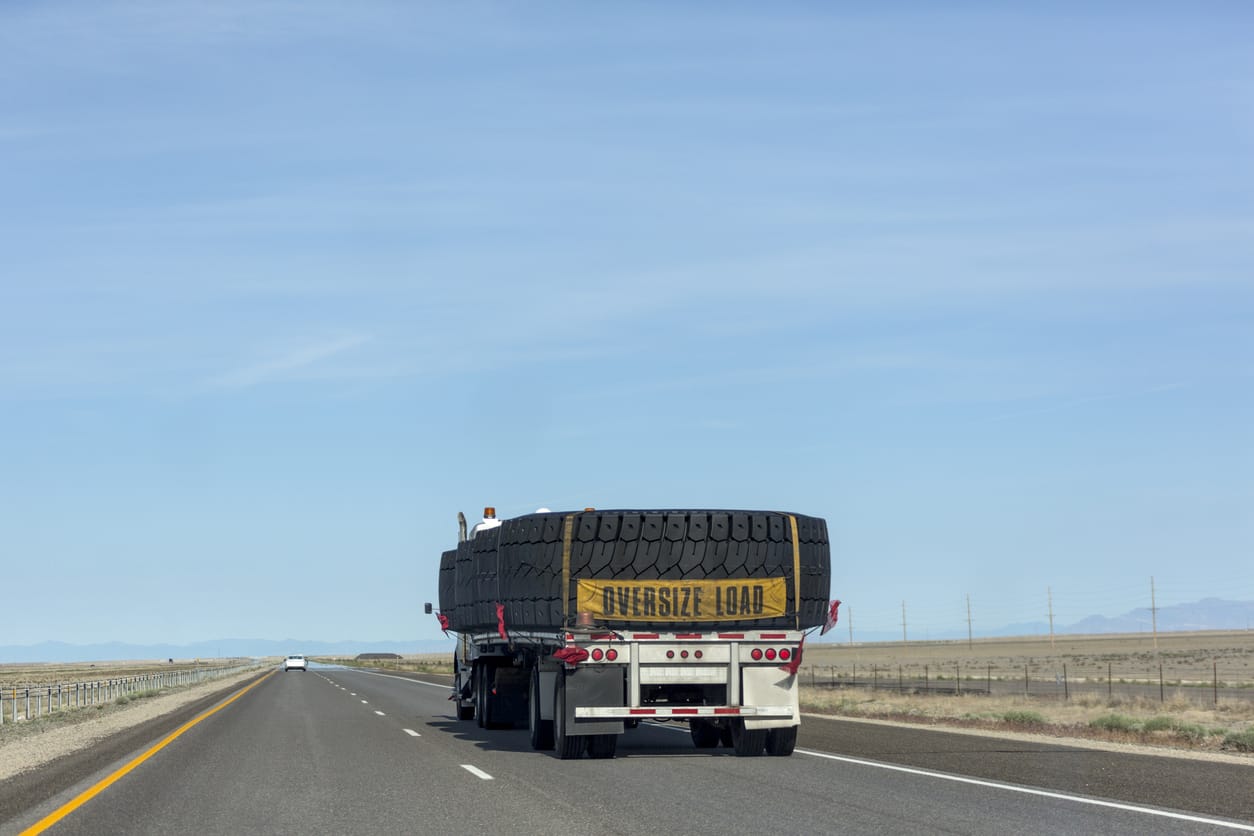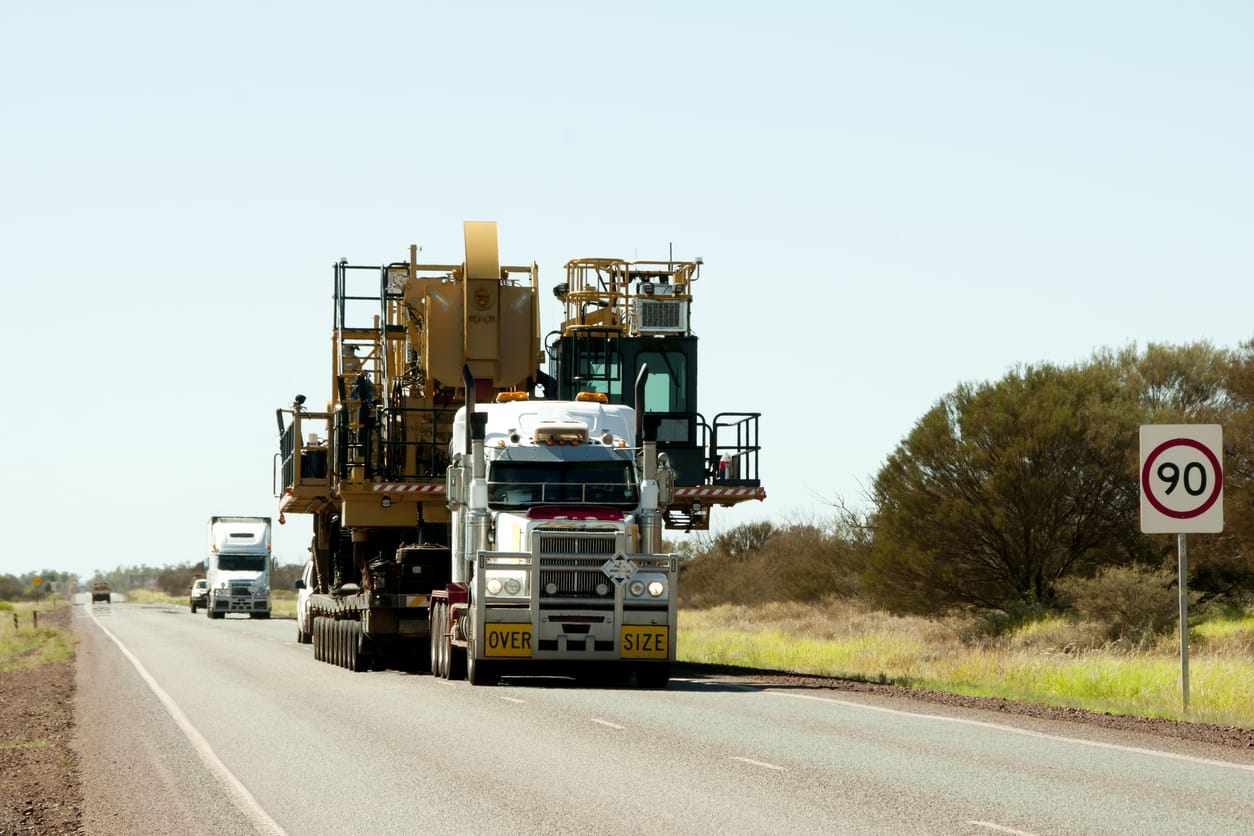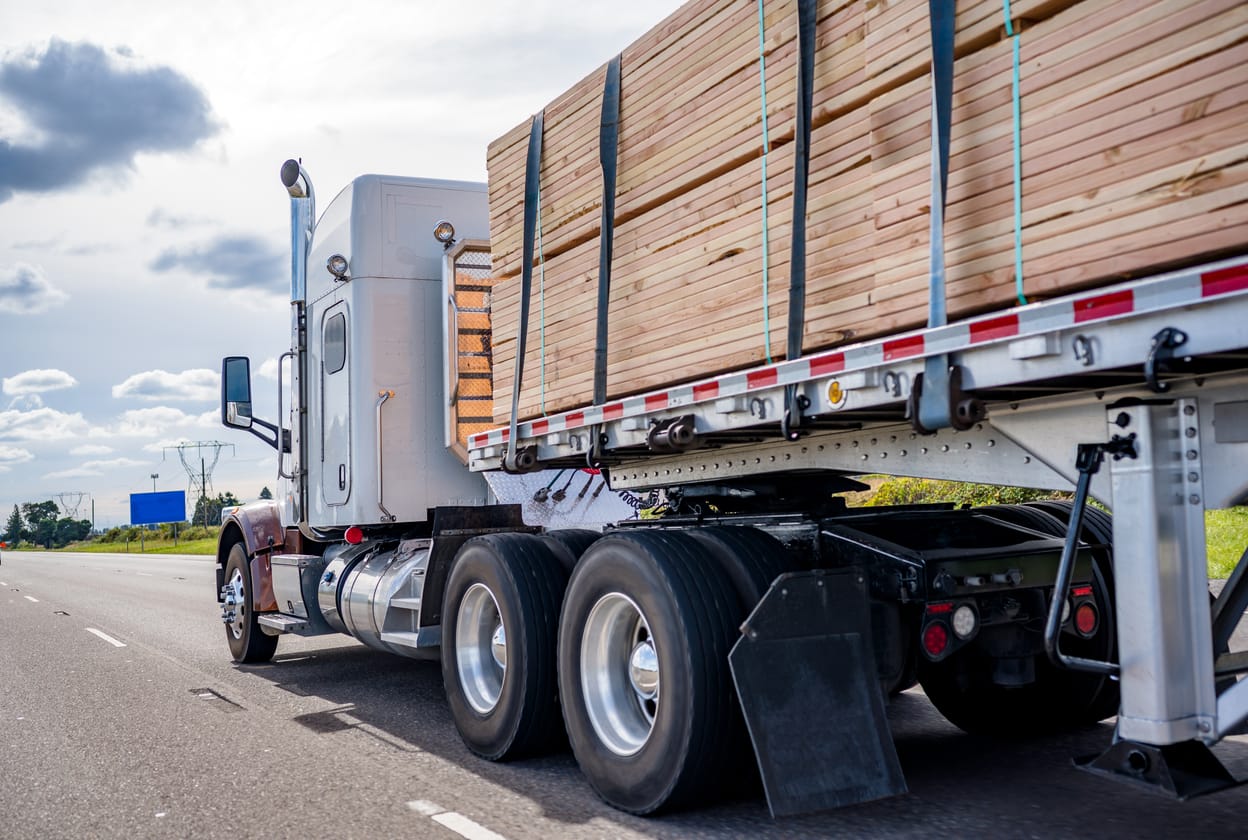While legal axle weight limits for trucks can be a hassle to keep track of, there are several crucial reasons these limits exist. Two primary reasons for legal limits on truck weight are:
- When trucks carry too much weight, the risk of damage to drivers and other motorists increases greatly.
- Infrastructure damage. Roads, bridges, and other public infrastructure cannot sustain unlimited weight. Trucks that travel in excess of the legal weight limits risk damaging these travelways.

Weight limits for trucks are subject to both federal and state weight limits.
Federally, there is a common metric for calculating truck weight limits called the Federal Bridge Formula (FBF). This formula supersedes state limits; for example, no state can have a gross weight limit beyond 80,000 lbs due to the FBF.
States sometimes refer to this formula rather than legally specifying their own weight limits for trucks.

Legal truck limits for states are broken down by both axle (single, double, or tridem) and gross weights.
The maximum weight is measured in lbs.
Notably, states have their own weight tables which are sometimes referred to instead of listing a specific number. This is what is meant by “Per weight table.”
| State | Single | Double | Tridem | Gross |
|---|---|---|---|---|
| Alabama | 20,000 | 34,000 | 42,000 | 80,000 |
| Alaska | 20,000 | 38,000 | 42,000 | Per Federal Bridge Formula |
| Arizona | 20,000 | 34,000 | Per weight table | 80,000 |
| Arkansas | 20,000 | 34,000 | 50,000 | 80,000 |
| California | 20,000 | 34,000 | N/A | 80,000 |
| Colorado | 20,000 | 36,000 | Per Federal Bridge Formula | 80,000 |
| Connecticut | 22,000 | 36,000 | Per Federal Bridge Formula | 80,000 |
| Delaware | 20,000 | 34,000 | 60,000 | 80,000 |
| District of Columbia | 21,000 | 37,000 | Per weight table | 79,000 |
| Florida | 20,000 | 40,000 | Per Federal Bridge Formula | 80,000 |
| Georgia | 20,340 | 34,000 | Per Federal Bridge Formula | 80,000 |
| Hawaii | 22,500 | 34,000 | 42,500 | 80,000 |
| Mississippi | 20,000 | 34,000 | Per weight table | 80,000 |
| Missouri | 20,000 | 34,000 | Per weight table | 80,000 |
| Idaho | 20,000 | 34,000 | Per weight table | 80,000 |
| Illinois | 20,000 | 34,000 | 42,500 | 80,000 |
| Indiana | 20,000 | 34,000 | 50,000 | 80,000 |
| Iowa | 20,000 | 35,000 | Per weight table | 80,000 |
| Kansas | 20,000 | 34,000 | 43,500 | 80,000 |
| Kentucky | 20,000 | 34,000 | 48,000 | 80,000 |
| Louisiana | 20,000 | 34,000 | 42,000 | 80,000 |
| Maine | 20,000 | 34,000 | 45,000 | 80,000 |
| Maryland | 20,000 | 34,000 | Per weight table | 80,000 |
| Massachusetts | 18,000 | 34,000 | Per weight table | 80,000 |
| Michigan | 20,000 | 34,000 | Per weight table | 80,000 |
| Minnesota | 10,000 | 34,000 | 42,000 | 80,000 |
| Montana | 20,000 | 34,000 | Per weight table | 80,000 |
| Nebraska | 20,000 | 34,000 | Per weight table | 80,000 |
| Nevada | 20,000 | 34,000 | Per weight table | 80,000 |
| New Hampshire | 20,000 | 34,000 | Per weight table | 80,000 |
| New Jersey | 20,000 | 34,000 | N/A | 80,000 |
| New Mexico | 21,600 | 34,200 | Per weight table | 80,000 |
| New York | 20,000 | 34,000 | Per Federal Bridge Formula | 80,000 |
| North Carolina | 20,000 | 38,000 | Per weight table | 80,000 |
| North Dakota | 20,000 | 17,000 | Per Federal Bridge Formula | 80,000 |
| Ohio | 20,000 | 34,000 | Per Federal Bridge Formula | 80,000 |
| Oklahoma | 20,000 | 34,000 | Per weight table | 80,000 |
| Oregon | 20,000 | 34,000 | Per weight table | 80,000 |
| Pennsylvania | 20,000 | 34,000 | Per weight table | 80,000 |
| Rhode Island | 22,400 | 36,000 | N/A | 80,000 |
| South Carolina | 10,000 | 35,200 | Per weight table | 80,000 |
| South Dakota | 20,000 | 34,000 | Per Federal Bridge Formula | 80,000 |
| Tennessee | 20,000 | 34,000 | 54,000 | 80,000 |
| Texas | 20,000 | 34,000 | N/A | 80,000 |
| Utah | 20,000 | 34,000 | N/A | 80,000 |
| Vermont | 20,000 | 34,000 | N/A | 80,000 |
| Virginia | 20,000 | 34,000 | N/A | 80,000 |
| Washington | 20,000 | Per weight table | N/A | 80,000 |
| West Virginia | 20,000 | 34,000 | Per Federal Bridge Formula | 80,000 |
| Wisconsin | 20,000 | 34,000 | Per state bridge formula | 80,000 |
| Wyoming | 20,000 | 34,000 | 42,000 | 80,000 |

Weight limits for trucks can vary significantly by state, so it’s good to know the specific regulations for your state to prevent dangerous or illegal transportation.
Have any other questions or concerns about transporting trucks or other vehicles? Check out other resources at Ship a Car for more information!




